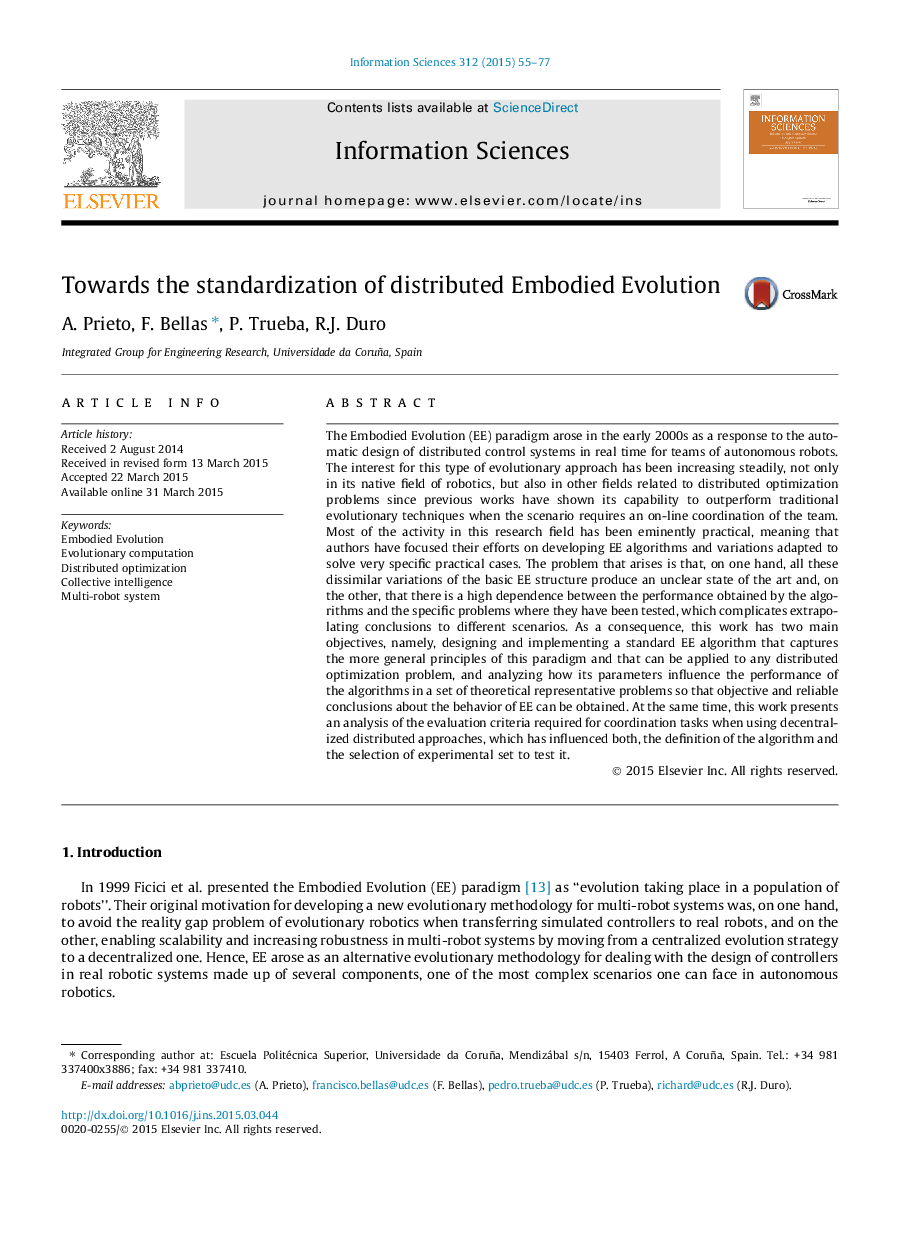| کد مقاله | کد نشریه | سال انتشار | مقاله انگلیسی | نسخه تمام متن |
|---|---|---|---|---|
| 392078 | 664662 | 2015 | 23 صفحه PDF | دانلود رایگان |
• We provide a first step towards the standardization of Embodied Evolution.
• We analyze the most representative implementations of the field.
• From this analysis we develop a canonical Embodied Evolution algorithm.
• We define a set of theoretical representative distributed optimization problems.
• A sensitivity analysis of the algorithm is performed.
The Embodied Evolution (EE) paradigm arose in the early 2000s as a response to the automatic design of distributed control systems in real time for teams of autonomous robots. The interest for this type of evolutionary approach has been increasing steadily, not only in its native field of robotics, but also in other fields related to distributed optimization problems since previous works have shown its capability to outperform traditional evolutionary techniques when the scenario requires an on-line coordination of the team. Most of the activity in this research field has been eminently practical, meaning that authors have focused their efforts on developing EE algorithms and variations adapted to solve very specific practical cases. The problem that arises is that, on one hand, all these dissimilar variations of the basic EE structure produce an unclear state of the art and, on the other, that there is a high dependence between the performance obtained by the algorithms and the specific problems where they have been tested, which complicates extrapolating conclusions to different scenarios. As a consequence, this work has two main objectives, namely, designing and implementing a standard EE algorithm that captures the more general principles of this paradigm and that can be applied to any distributed optimization problem, and analyzing how its parameters influence the performance of the algorithms in a set of theoretical representative problems so that objective and reliable conclusions about the behavior of EE can be obtained. At the same time, this work presents an analysis of the evaluation criteria required for coordination tasks when using decentralized distributed approaches, which has influenced both, the definition of the algorithm and the selection of experimental set to test it.
Journal: Information Sciences - Volume 312, 10 August 2015, Pages 55–77
